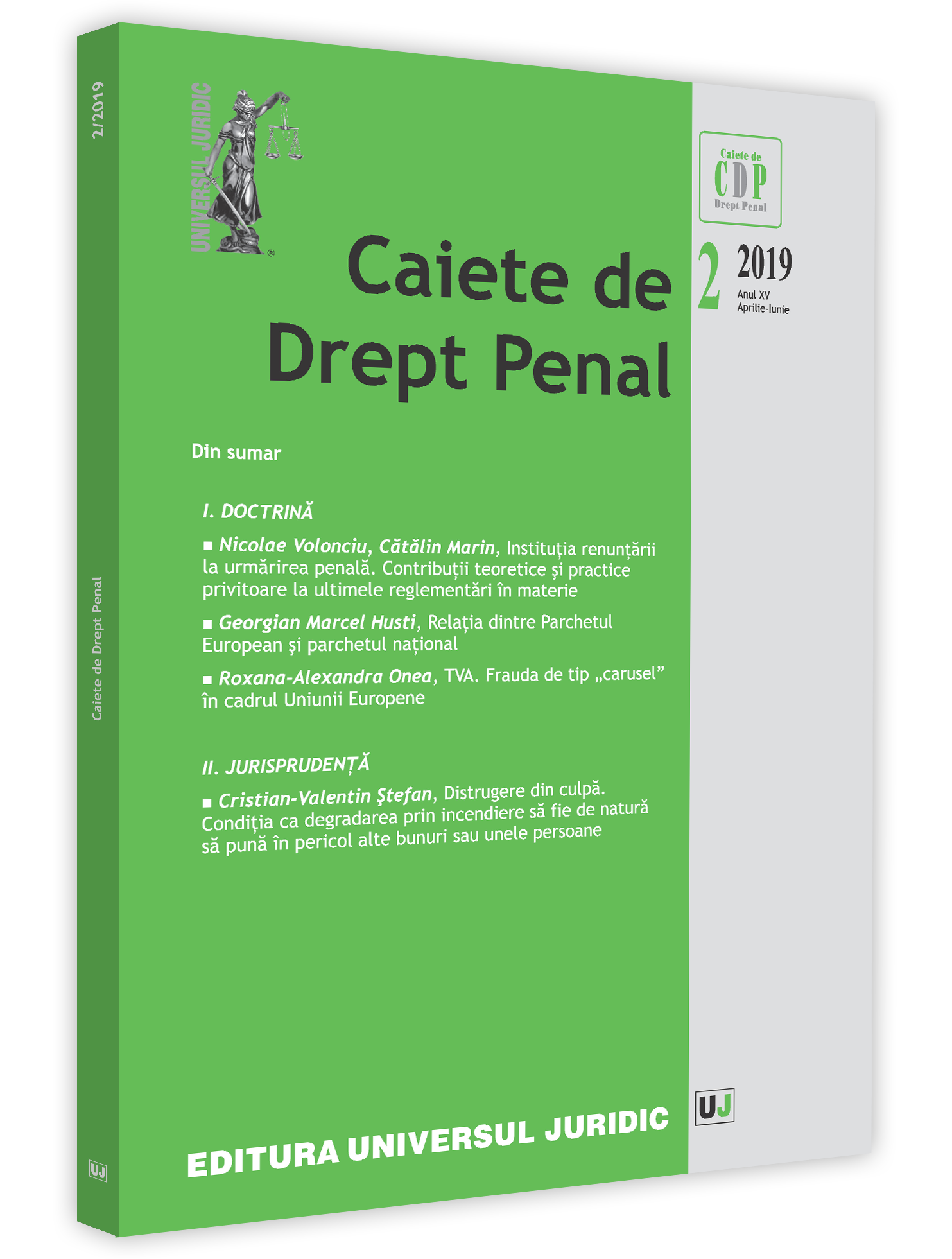Instituţia renunţării la urmărirea penală. Contribuţii teoretice şi practice privitoare la ultimele reglementări în materie
The Institution of Waiver of Penalty Enforcement. Theoretical and Practical Contributions Regarding the Latest Regulations
Author(s): Nicolae Volonciu, Cătălin MarinSubject(s): Law, Constitution, Jurisprudence, Civil Law
Published by: Universul Juridic
Keywords: public interest; dropping charges; criminal investigation; preliminary chamber judge;
Summary/Abstract: According to the new Criminal Code of Procedure, in the cases and conditions stipulated by law, the prosecutor can waive the exercise of the criminal action if, considering the concrete elements of the case, there is no public interest in prosecuting the defendant. In this regard, according to Romanian law, in the situation of offenses for which the law provides the penalty of a fine or a penalty of imprisonment of no more than 7 years, the prosecutor can drop charges when, considering the content of the offense, the modus operandi and the instruments used, the goal of the offender and the concrete circumstances of its commission and the consequences that occurred or could have occurred, he or she finds that a public interest is not served in prosecuting. When the offender is identified, weighing the public interest also involves looking at the person of the suspect or defendant, their conduct previous to the offense and the efforts made in removing or minimizing the consequences of the offense. After consulting with the suspect or the defendant, the prosecutor can order that they comply with one or several of the obligations regulated by law. In case of non-compliance or ill-faith of the obligations within the fixed deadline, the prosecutor shall rescind their order.
Journal: Caiete de drept penal
- Issue Year: 2019
- Issue No: 02
- Page Range: 9-25
- Page Count: 17
- Language: Romanian
- Content File-PDF

